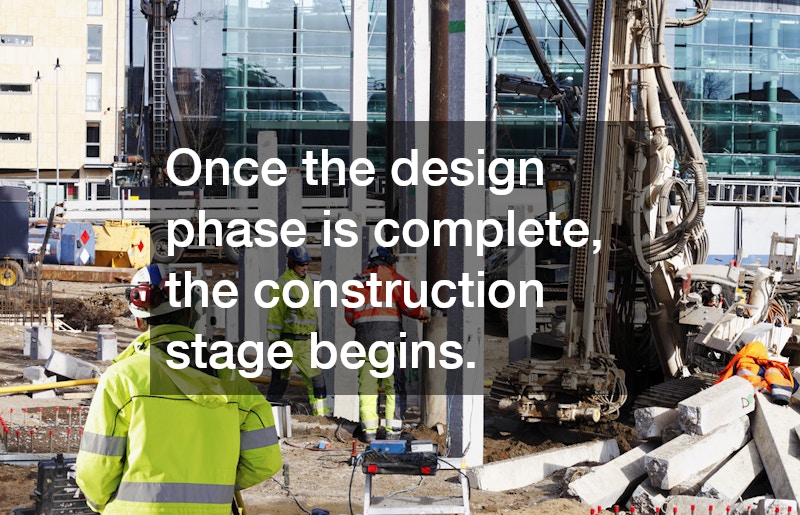Disclaimer: Quick Jobs. This site provides business content for informational purposes only.
Commercial construction services encompass a wide range of activities that are essential for the development of commercial properties. These services include everything from planning and design to execution and maintenance. Understanding the scope of these services is crucial for anyone looking to embark on a commercial construction project.
The complexity of commercial projects demands a thorough understanding of the processes involved. This knowledge helps in anticipating the challenges and ensuring smooth project execution.
For those new to commercial construction, it’s important to recognize the expertise that commercial construction services bring to the table. These services often involve intricate architectural designs that need precise execution. Professional construction teams provide invaluable insight into regulatory compliance and industry standards. This guidance is vital for avoiding costly mistakes and ensuring that projects meet legal requirements. As these experts are familiar with local codes and regulations, their involvement simplifies the often convoluted legal landscape.
Additionally, commercial construction services offer project management expertise that is crucial for timely completion. The coordination of different departments, such as electrical, plumbing, and structural engineering, requires expert management. This unified approach minimizes delays and ensures efficient use of resources. Proper project management is particularly beneficial in large-scale projects where timelines are critical. Having a dedicated team focused on these elements allows business owners to concentrate on their core operations without unnecessary distractions.
Key Stages of Commercial Construction Projects
The commercial construction process is typically divided into several stages, each with its own specific tasks and requirements. The initiation stage involves defining the project scope, budget, and initial design plans. This stage is fundamental as it lays the groundwork for all subsequent activities. A thorough feasibility study is often conducted to assess the viability and potential pitfalls of the project. Engaging with commercial construction services at this early stage can provide tailored advice that aligns project objectives with market realities.
The design phase of commercial construction is where architects and engineers come in to create detailed blueprints and specifications. This is a collaborative stage that requires input from multiple stakeholders, including clients, designers, and construction managers. High-quality design work is critical because it directly impacts the functionality and aesthetics of the finished building. Missteps at this juncture can lead to increased costs and project delays. Choosing an experienced design team is pivotal in translating a business’s vision into a tangible structure.
Once the design phase is complete, the construction stage begins. This is when the actual building work happens, involving various contractors and subcontractors. Effective on-site management is essential to ensure safety and efficiency. Regular inspections and updates are integral to keeping the project on track. Communication between all parties is key during this phase, as it prevents misunderstandings and optimizes resource allocation. As construction progresses, commercial construction services ensure that adjustments and troubleshooting are handled promptly.
The Role of Budgeting in Commercial Construction
Budgeting is one of the most critical aspects of any commercial construction project. An accurate budget outlines the expected costs and helps in securing funding. Commercial construction services provide detailed budget estimates based on the project scope and market conditions. It’s important for clients to have a realistic understanding of costs to avoid unpleasant surprises. A well-planned budget helps in preventing financial strain and ensures the project remains viable.
Budget management is a continuous process throughout the project life cycle. Changes in scope or unforeseen challenges can affect costs, making flexibility in budget management essential. Commercial construction teams monitor expenses closely and adapt strategies as needed. Regular financial reviews and transparent communication with stakeholders help maintain fiscal discipline. This proactive approach ensures that projects stay within financial constraints while meeting quality standards.
Another crucial aspect of budgeting is value engineering, where experts analyze project elements to find cost-saving opportunities without compromising quality. This process involves evaluating materials, construction techniques, and design options. By optimizing these variables, businesses can achieve significant savings. Commercial construction services excel in identifying these opportunities, enhancing overall project value. Efficient budget utilization not only saves money but often accelerates project timelines.
Navigating Regulatory Compliance and Permitting
Regulatory compliance is a critical consideration in commercial construction, requiring careful navigation of complex laws and regulations. Each jurisdiction has unique codes that projects must adhere to, which can be a daunting task for those unfamiliar with the process. Engaging with commercial construction services ensures that all necessary permits are obtained before breaking ground. These professionals have established relationships with local authorities, streamlining the permitting process. Ensuring compliance from the outset mitigates risks of legal challenges and potential fines.
An integral part of regulatory compliance involves environmental considerations, which are increasingly emphasized in modern construction projects. Sustainable building practices are not only beneficial for the environment but often required by regulation. Commercial construction services provide guidance on eco-friendly building materials and practices that reduce the environmental impact. Adhering to these standards can also result in tax incentives or certifications that enhance property value. Navigating these requirements requires expertise that seasoned construction services readily offer.
Safety regulations are another key component of compliance that cannot be overlooked. Commercial construction projects must adhere to strict occupational safety standards to protect workers and future occupants. This involves routine safety audits and employing best practices in construction site management. The role of commercial construction services is vital here, as they implement site-specific safety programs and maintain compliance with safety regulations. A strong safety record not only protects personnel but also reduces liability and enhances project credibility.
Choosing the Right Commercial Construction Partner
Selecting the right commercial construction partner is a crucial decision that affects the success of a project. It’s essential to evaluate potential partners based on their experience, reputation, and portfolio of completed projects. A thorough vetting process can prevent future complications and ensure alignment with project goals. Transparency in communication and a clear understanding of expectations are foundational to a successful partnership. The expertise provided by the right team can significantly enhance project outcomes.
Another important factor in choosing a construction partner is their approach to project management and client collaboration. Effective partners maintain open lines of communication and are responsive to client concerns. They provide regular project updates and involve clients in decision-making processes. This collaborative atmosphere fosters trust and leads to more satisfactory project outcomes. Commercial construction services prioritize client satisfaction, making them an invaluable resource for businesses.
Additionally, assessing a construction partner’s approach to innovation and technology can provide a competitive edge. Firms that integrate the latest technologies, such as Building Information Modeling (BIM), offer enhanced efficiency and precision in project execution. These tools improve coordination and can identify potential issues before construction begins. Aligning with technology-forward partners means leveraging these benefits for superior project delivery. Choosing an innovative commercial construction service can differentiate a project in a competitive market.

